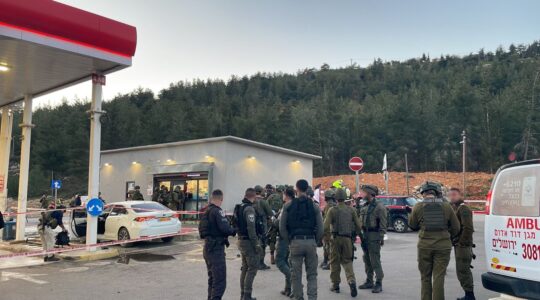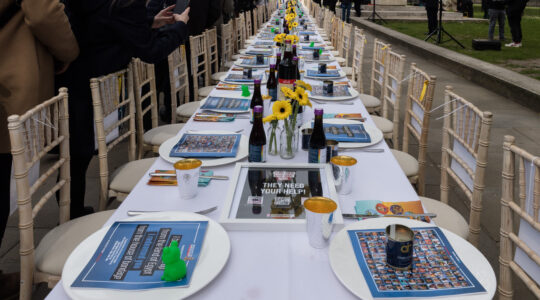JERUSALEM (JTA) – A bill to legalize West Bank outposts retroactively was voted down by the Knesset.
Wednesday afternoon’s vote on a preliminary reading of the bill was 69 lawmakers against the bill and 22 for it. The legislation would have retroactively legalized buildings built on contested land if the owner does not challenge the construction within four years.
In news conference after the vote, Prime Minister Benjamin Netanyahu discussed the bill’s defeat and its significance. "Moving homes from their location, even if it is only five homes, is certainly not an action that this Government rejoices in doing. But the court ruled as it did and we honor the decisions of the judicial system."
Netanyahu said that the Beit El settlement would be expanded by 300 families, and issued a warning to the left wing, that has challenged West Bank outposts in court. "I tell those who think they can use the judicial system to hurt settlement, that they are mistaken, because in practice, the exact opposite will occur. Instead of shrinking Beit El – Beit El has expanded. Instead of hurting settlement, settlement has been strengthened," he said.
The prime minister also announed that he would establish a ministerial committee on settlement "to ensure that the government’s policy of strengthening settlement is implemented."
No government ministers voted for the bill, after Prime Minister Benjamin Netanyahu’s office announced Monday that any government minister who votes for the bill would lose his or her job.
Several Likud ministers and the head of the Jewish Home Party had threatened to vote for the bill, but instead reportedly did not show up for the vote.
The bill would have saved from demolition five apartment buildings from the Ulpana neighborhood on the outskirts of the Beit El settlement.
Attorney General Yehuda Weinstein late Tuesday night approved a plan put forward by Netanyahu, which would move the five apartment buildings housing about 30 families to land that is not privately owned by Palestinians, instead of being razed as ordered by the Supreme Court. In addition, 10 new housing units would be constructed in the settlement for every building moved.
Israel’s Supreme Court ruled in September that the neighborhood should be razed, siding with a lawsuit filed by Palestinians who said they owned the land. A July 1 deadline has been set for the razing.
Netanyahu reportedly presented Weinstein’s legal opinion on his plan before the vote. Weinstein also indicated, however, that the decision to allow the moving of Ulpana could not be used as a precedent for other contested outposts.
After the vote about 1,000 activists reportedly blocked the entrance to the Knesset building. There were clashes between protesters and security guards. Protesters also blocked the Jerusalem Light Rail and roads at the entrance to Jerusalem.
Dozens of demonstrators, mostly teens, had blocked a road in Jerusalem next to the Supreme Court in Jerusalem where a protest tent had been set up, objecting to the possible evacuation of Ulpana. The demonstration came after a nearly three-day protest march from Ulpana to Jerusalem.





